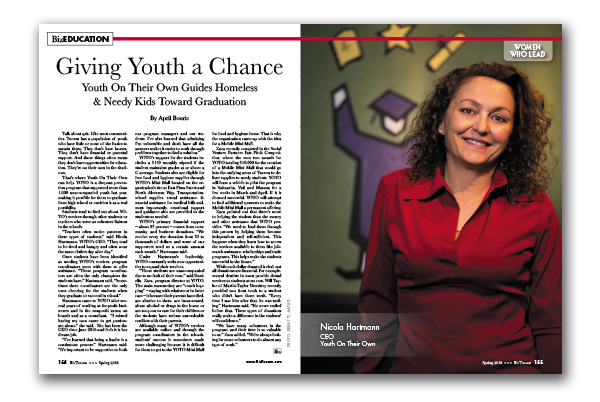
January Jams – Inaugural Jazz Festival Brings Swing to Tucson
By Chuck Graham –
Fletcher McCusker wants to make Tucson cool again. He figures a jazz festival could put some swing in the city’s step and be a catalyst for stirring up downtown business in January.
“I’ve been involved with the Telluride Jazz Festival for about 10 years,” said McCusker, board chairman of Tucson’s Rio Nuevo district and a vigorous advocate for downtown business. “That one started small just like this one. I’ve seen the impact a festival like this can have.”
“The mayor decided he wanted to have a downtown jazz festival in January, specifically to boost tourism,” said Yvonne Ervin, who left her job at the University of Arizona to become executive director of the inaugural Tucson Jazz Festival, set for Jan. 16-28.
“In February we always have the gem show and the rodeo. In March there is Tucson Festival of Books,” said Ervin. “But there is nothing in January. I said if you can raise $100,000 in six weeks, I’ll quit my job and do the festival.”
They did and she did. That was last summer.
By the middle of September all the acts were booked. Most famous among them is songwriter Burt Bacharach, not exactly a jazz monster but certain to sell a lot of tickets.
The more proper jazz list includes organ master Joey DeFrancesco with legendary drummer Jimmy Cobb, Grammy-winning vocalist Dianne Reeves, jazz noir flugelhorn romantic Dmitri Matheny, 1920s traditionalists The Hot Sardines octet and tasteful crooner Allan Harris with a tribute to Nat “King” Cole. Reeves and The Hot Sardines are UApresents concerts and Bacharach is presented in conjunction with the Rialto Theatre.
Coming from way outside the mainstream is young Robert Glasper, pianist and innovator, experimenting with jazz hip-hop fusion, R&B and other energetic blends.
Here to represent the hipper side of rock ’n’ roll are songwriter JD Souther, who made essential contributions to the Eagles, working in a jazz duet setting with pianist/composer Billy Childs.
“We wanted the list to have jazz credibility, first of all,” said Dan Coleman, music publisher and the festival’s co-artistic director. “But we also wanted to appeal to the widest possible audience to establish the festival as an annual event.”
Most events in Tucson’s fledgling festival will be held in the city’s heart along the stretch of Congress Street going east from the Fox Tucson Theatre to the Rialto Theatre and Club Congress.
Eager to take the credit as instigator for getting jazzy with Tucson’s “brand” is Elliot Glicksman, a local lawyer and frequent fundraiser for many causes.
“I’ve always been a big jazz fan,” he said. “My dog is named Miles Davis. I kept telling the mayor a jazz fest would be great for the city. What inspired me initially was seeing the quick growth of the book fair.”
Early this year, Glicksman took his longtime friend Mayor Jonathan Rothschild to a northside nightspot to hear a jazz group that included pianist and UA music faculty member Jeff Haskell. Wouldn’t you know, Haskell brought along longtime friend Ervin.
That very evening ideas were tossed around and pieces started clicking into place. The mayor said he would be honorary chairman. Glicksman and friends raised the $100,000. Ervin changed her life to be the executive director.
Haskell and Coleman stepped up as the festival’s co-artistic directors and before you could ask “who’s the headliner?” Humberto Lopez of HSL Properties said he would sign on for five years as the title sponsor. The 13-day event’s official name became the HSL Properties Tucson Jazz Festival.
Ervin is best remembered for jumping into the fledgling Tucson Jazz Society as director in the late 1970s while still a UA music student. In 1981, TJS founded and continued the Primavera Festival, celebrating women in jazz, which became the nation’s longest running annual women’s jazz fest, enduring more than 20 years.
In 1993 in Nogales, the birthplace of legendary bassist Charles Mingus, Ervin organized that city’s annual Jazz on the Border: The Mingus Festival, which has become an annual event.
By 1998, when Ervin left for New York City, she had built TJS into one of the country’s largest jazz societies.
In New York, Ervin’s fundraising efforts brought in more than $10 million for various social service agencies working to prevent teen pregnancies, help homeless people with AIDS and other causes.
“I’ve known Yvonne a long time,” McCusker said. “I knew if she was involved in a Tucson jazz festival, it would happen. She is so connected.”
Without giving the rear-view mirror a second look, Ervin plunged ahead, drawing up a $400,000 budget and lining up sponsors. Organizationally the festival is operating under the umbrella of the TJS, which will receive 8 percent of all sponsorship dollars.
“We know from our own studies that each person at the festival will probably spend about $30 on nonevent expenses such as dinner, parking and so on,” said McCusker. “What made Telluride successful was the concert events ended at 9 p.m., so afterward everybody went to local restaurants and bars for more music, food and drink.
“We’re hoping that happens here.”





